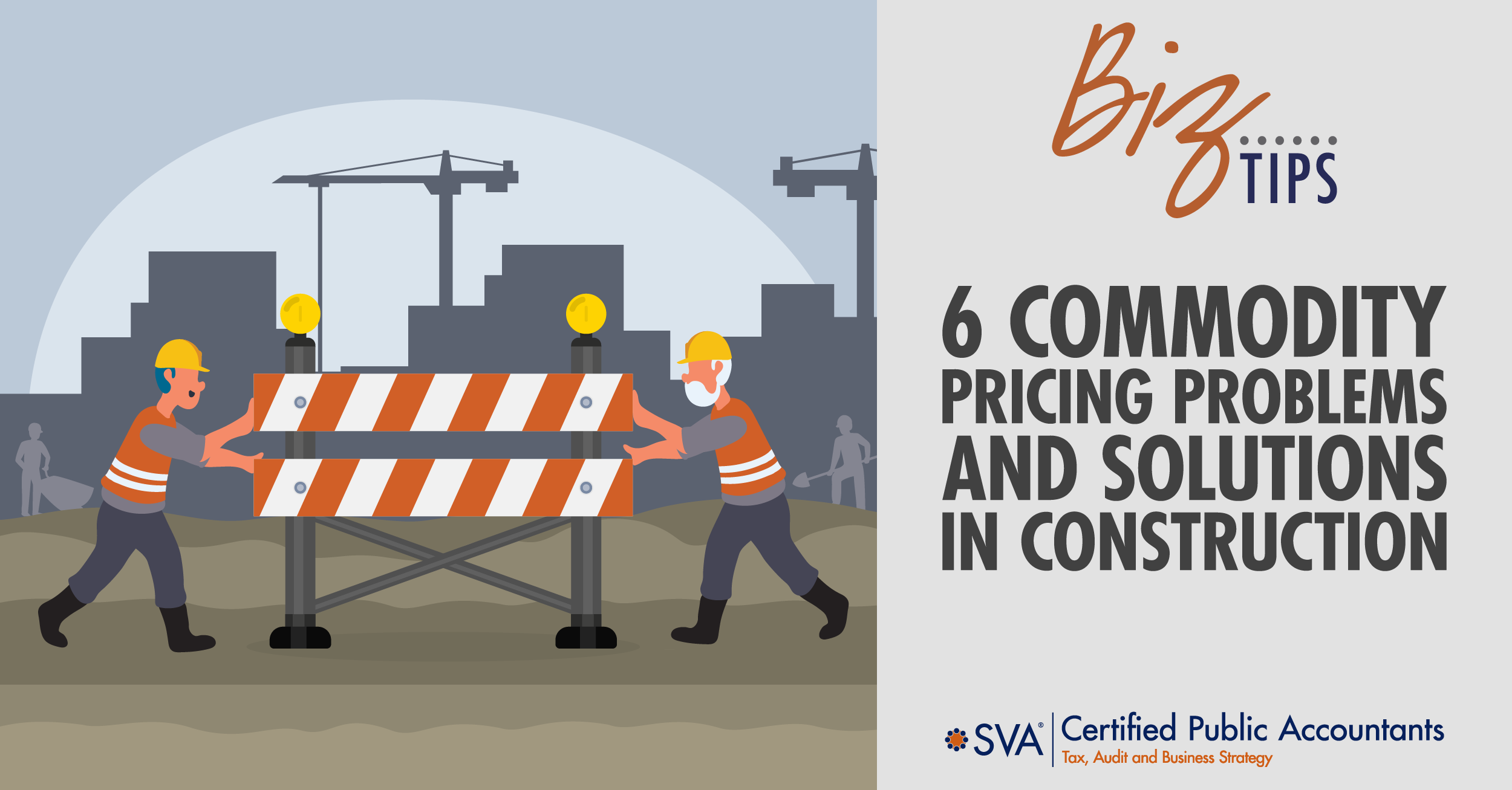| Highlights: |
- Summarizes six major commodity-pricing issues in construction, including material cost volatility, supply chain disruptions, fixed-price contract risks, and planning challenges faced by contractors.
- Explains how fluctuating prices for key materials like steel, lumber, and concrete can lead to budget overruns, supply shortages, and quality or sustainability tradeoffs on projects.
- Offers practical guidance for contractors and project managers on managing price risk through better cost forecasting, contractual terms, supply strategies, and market awareness.
|
The construction industry is particularly sensitive to the ebbs and flows of commodity prices. These fluctuations can significantly impact the cost, timing, and feasibility of construction projects.
Understanding how these changes affect the industry is crucial for stakeholders and management.
The Ripple Effect of Commodity Prices
1. Cost Implications of Commodity Prices
The most immediate effect of changes in commodity prices is seen in the cost of construction materials. Essential commodities like steel, copper, concrete, and lumber are pivotal in construction projects and can significantly influence budgets.
| Increased Material Costs |
When the prices of commodities rise, the direct cost of these projects can escalate significantly. Since these are fundamental components in many construction projects, the overall material costs can substantially impact the profitability of the project. |
| Budget Overruns |
Fluctuating prices make it challenging to estimate and stick to budgets. Projects that were financially viable at the planning stage might face budget overruns as material costs rise, leading to the need for additional funding or cost-cutting in other areas. |
2. Project Planning and the Role of Commodity Pricing
The volatility in commodity prices poses challenges in project planning. Accurate cost forecasting becomes vital to maintain the feasibility of projects.
| Altered Project Scope |
To cope with higher material costs, project scopes might need to be adjusted. This could mean reducing the size or scale of the project or opting for different construction methods or materials. |
| Feasibility Issues |
In some cases, especially for projects with tight margins, significant increases in commodity prices can render projects unfeasible, leading to postponements or cancellations. |
3. Supply Chain Disruptions in Sourcing Materials
Global events such as political unrest, trade disputes, or natural disasters can disrupt supply chains, leading to fluctuations in commodity prices. This can result in shortages of crucial materials, further escalating prices.
| Stockpiling Risks |
In anticipation of rising prices, some companies might stockpile materials, which can lead to increased inventory costs and potential issues with storage and cash flow. |
| Price Volatility |
Disruptions in the supply chain can lead to increased price volatility, as suppliers may significantly increase prices if struggling to meet demand or adjust their pricing models more frequently. |
4. Contractual Challenges Amidst Price Fluctuations
| Risk in Fixed-Price Contracts |
Contractors often bid on projects and sign contracts based on fixed prices. Fluctuating material costs, especially unexpected increases, can erode profit margins or even lead to financial losses if these costs cannot be passed on to the client. |
| Re-Negotiations and Delays |
In response to rising costs, contractors might need to renegotiate contracts or adjust project scopes, leading to delays and strained client relationships. |
5. Quality and Sustainability in Construction and Building Materials
| Compromised Quality |
To mitigate rising costs, there might be a temptation to use lower-quality materials, which can affect the overall quality and durability of the construction. |
| Sustainability Impact |
Economic pressures might also lead to choices that are less environmentally friendly, impacting the sustainability goals of the project. |
6. Market Dynamics and Investment Decisions
| Impact on Real Estate Prices |
The increased cost of construction can lead to higher real estate prices, affecting affordability and market dynamics. |
| Investment Uncertainty |
Fluctuating material costs can lead to uncertainty in investment decisions, both for new construction projects and for renovations or expansions of existing structures. |
© 2024 SVA Certified Public Accountants

